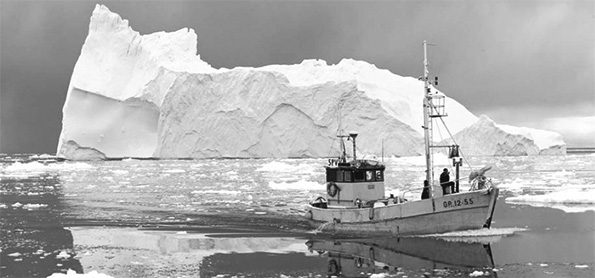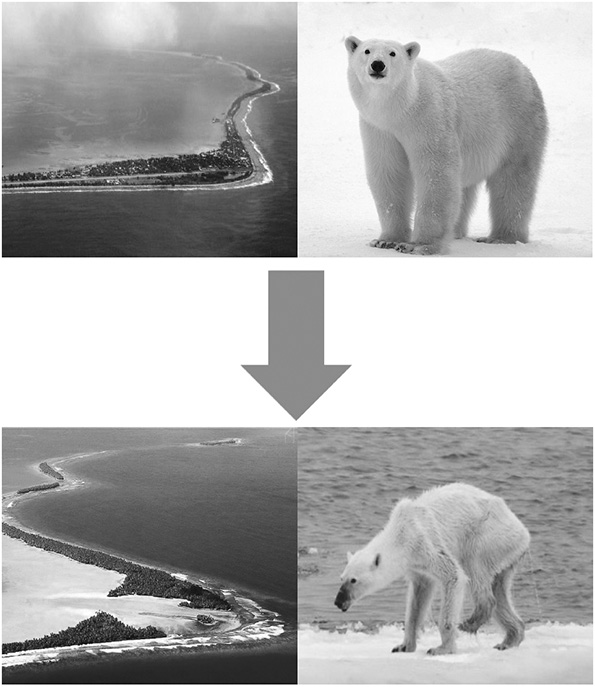If one asks people about well-known environmental issues, most of them would answer ‘global warming and melting glaciers as an aftermath.’ According to Britannica, the definition of global warming is ‘The phenomenon of rising average air temperatures and sea level near Earth’s surface over the past 100 to 200 years’. As this phenomenon continues, several environmental issues arose including melting glaciers. Even before the wrecked ecosystems and rising sea levels came up as a global issue, glacial melting and shrinking were the most critical collateral damage from global warming. Of course, some economic advantages surfaced due to the meting process, such as exposing natural resources that were previously under the glaciers, or a new route emerging to pass straight through the arctic. However, looking only at the bright side would accelerate global warming, leading to a detrimental effect on humankind. Let’s find out the various perspectives of the results from glacier melting and shrinkage. - Ed
Natural Resources
There is a myriad of natural resources buried under the arctic sea level. The most representative case is Greenland. Greenland is known as a country where 80% of its landmass is covered with an ice cap, and less than 2% can be used as agricultural area. However, Greenland is also known for an abundance of mineral and natural resources, including iron ore, gold, and rare-earth elements. Since natural resources generate a tremendous economic value, the ice caps’ melting has a possibility of contributing to Greenland’s economic growth. In addition to this, according to research conducted by the United States Geological Surveys (USGS) in 2008, the analysis indicated the sum of undiscovered oil and natural gas in the Arctic Circle. There are 90 billion barrels and 1,669 trillion m³ buried under the icebergs, accounting for 15% and 30% of undiscovered resources in the world, respectively. Through these, not only Greenland but also other circum-arctic areas, can benefit from the exposed lands due to glacial shrinkage.
Revealing Arctic Treasures
Not only did thawing glaciers open the new route, but it also opened a new field of study called glacial archaeology. Artifacts, ancient bodies, animals, etc., are all revealed as the ice disappears. For example, according to an article in the Daily Mail, a 5300 year old mummified body was found in the Alps in 1991 due to the glacial retreat. Besides this region, various frozen archaeological finds can be excavated throughout the arctic area, contributing to a more in-depth understanding of the history of the Earth.
Opening New Routes
Melting ice is providing a more direct path to run through the arctic sea. Currently, the method to navigate the trans-arctic route makes use of icebreakers in summer or going through the territorial waters of multiple countries. If global warming keeps causing glacier retreat, the arctic sea will become navigable. The direct way will create an economic profit by reducing travel distance, navigation time, and saving on territorial rates and vehicle operating costs.
Opinion From the Experts
“The ecosystem might be a little more active for a while, but it will soon be countervailed due to more exterior elements,” said Kim, Kwan-soo (Ph.D. of CBNU, Earth Environmental Science), who is currently working in the Korea Polar Research Institute. Explaining the expected effect on changing ecosystems due to melting glaciers, he added, “The food chain of the North and South Pole are quite simple. Consequently, if one organism is removed, the whole ecosystem will collapse. For example, the organic matter inside glaciers might nurture the ocean’s planktons, leading to a rich producer chain. However, too much producer will be detrimental to the whole food system in both Arctic and Antarctic oceans at the end.” Kim also gave an opinion about what the bright side of the economic aspect of the glacial retreat might bring. “Due to the ice cap shrinkage and warming temperature, the Polar Region’s economic value is growing. In addition to the existing mineral resources, new plant resources are growing in the thawed region. I think the Polar Region has an ample amount of economic value.”
A Promising Sign After All?
Is the retreat process a happy ending? As many would raise a worrisome estimation and as mentioned above, melting ice caps is fatal to the ecosystem in the poles. Penguins in the Antarctic and polar bears in the Arctic is the symbol of this environmental crisis. In the case of penguins, it is evident that the habitat will shrink. Besides losing their home, it affects securing food. Penguins’ walking speed on land is much slower than on ice. Besides, there is a higher chance for them to get lost on the ground than on ice. Exposing more land means that those penguins who take charge of obtaining food will take much more time and get lost easily. In the end, there is a higher chance that penguins can starve due to the ice mass. In the case of polar bears, melting ice hampers their hunting for food. Thawing sea ice from climate change will give polar bears a hard time when hunting and will eventually worsen their health condition due to the extended starving period. Unhealthy polar bears will give birth to fewer cubs, leading to a declining population of polar bears. The diminution of polar species impacts on the food system, bringing about the destruction of the food pyramid and mass confusion.
Global warming means a warming Earth. Naturally, warmer climate unfreezes enormous icebergs, and the water from them causes the sea level to rise. Due to the rising sea levels, Island nations such as Tuvalu, Maldives, or Kiribati will become uninhabitable because those islands are endangered by rising sea levels. Moreover, glaciers and snows have the role of a reflecting plate, which reflects back the solar radiant energy into space. If those natural reflectors diminish, it will become a vicious circle: Sea and land will directly absorb the solar radiant energy and accelerate the melting process by the raised temperature of sea water and soil.
As mentioned above, melting glaciers isn’t necessarily all negative. It may even give humankind economic growth and archeological values. However, we cannot ignore the dangerous facts that still exist just because there are a few positive aspects. Ecosystem confusion and other agitating phenomena, that will be detrimental to survival, are significant challenges we have to address. Humans cannot exchange substantial values for artificial values. It is up to us whether we will disregard it or not.
By Kang Min-ji | mj41@cbnu.ac.kr
By Lee Ju-yeon | jy37@cbnu.ac.kr


 All
All Feature
Feature






 Kang Min-ji&Lee Ju-yeon
Kang Min-ji&Lee Ju-yeon













